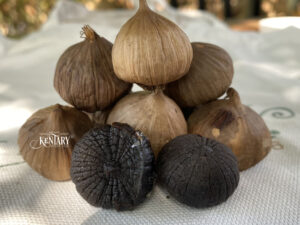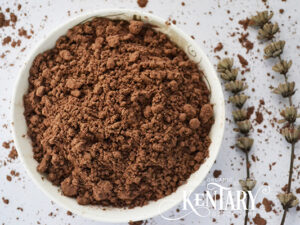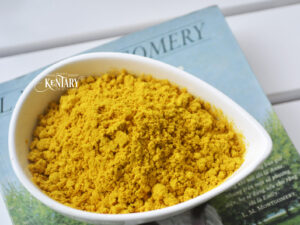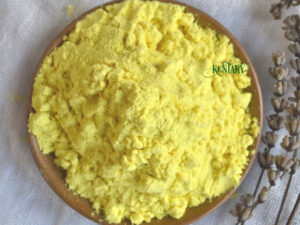There are lots of different causes of food poisoning – like bacteria, chemicals and toxins. But some foods are more likely to make you sick than others. There are 5 foods that present a higher risk of food poisoning
Every year food poisoning affects millions of people all around the world. Illnesses range in severity and in some cases can even result in death. There are lots of different causes of food poisoning – like bacteria, chemicals and toxins. But some foods are more likely to make you sick than others. This is because these foods are more at risk of bacterial growth than others. So, if they aren’t cooked to a certain temperature or aren’t stored or handled properly, there’s a higher chance they’ll make you sick. There are 5 foods that present a higher risk of food poisoning
1.Eggs

Salmonella, one of the germs that commonly causes food poisoning, may contaminate eggs – google image
Salmonella, one of the germs that commonly causes food poisoning, may contaminate eggs. The risk of contamination is much higher when a person eats raw or undercooked eggs. Salmonella can contaminate eggs when the birds that lay them have the infection. The infection can contaminate the insides of the eggs as they form in the bird’s body.
Contaminated feces from an infected bird can also affect the egg. Staphylococcus aureus (Staph aureus) is a bacterium that produces poison in food that has been unrefrigerated for too long. Although cooking the food can kill the majority of bacteria, the Staph aureus toxins remain and may still cause illness.
To reduce the risk of infection, keep eggs refrigerated at 40°F (4.4°C) or lower. Do not use cracked or damaged eggs, and thoroughly cook eggs until the yolks are firm. For dishes that require partially uncooked eggs, only use pasteurized eggs.
Any meal that contains eggs or egg based mayonnaise also needs to be refrigerated within 2 hours of preparation.
2.Raw Milk
Raw milk is milk that is unpasteurised, which means that it hasn’t been heated to kill any harmful bacteria. The risk of consuming raw milk is that there’s a higher chance of the milk containing bacteria, for example, E. coli, salmonella or listeria. If consumed, these bacteria can cause a range of food poisoning illnesses, which vary from mild to life-threatening.Take care to ensure that meals and foods containing dairy products are refrigerated at 35–40°F (1.6 to 4.4°C) within 2 hours of preparation.
3.Sprouts

Because sprouts are often eaten raw, they carry a high-risk of causing foodborne illness – google image
Sprouts grow in a warm and wet environment, which are the perfect conditions for rapid bacteria growth. This means they’re really difficult to keep clean. Because sprouts are often eaten raw, they carry a high-risk of causing foodborne illness, in particular from salmonella and E. coli.
If contaminated, it’s likely that the seeds of the sprouts are the home of any harmful bacteria. Although there are different ways to reduce the risk of contamination, no treatment is guaranteed to kill all of the bacteria.
Often people who might be more vulnerable to the effects of the potential bacteria – pregnant women, the elderly, children and people with a weakened immune system – are directed to stay away from sprouts. If you’re going to eat them, you’re advised to cook all raw sprouts to lower the risk of potential contamination.
4.Deli Meats
Deli meats and other cold-cut meats are often highly processed and include ham, hot dogs, salami and bacon. The storage of deli meats is especially important because they’re often not cooked before being eaten.
Listeria and other harmful bacteria can find its way into the processing factory and contaminate meats after they’ve been cooked but before they’ve been packaged. This is why it’s very important to cook hot dogs and bacon to at least 75 degrees Celsius for at least 3 minutes before eating. Also, cold meats should always be stored under 5 degrees Celsius to reduce the risk of further bacterial growth.
All meats carry a high-risk of causing foodborne illness if they’re not prepared and stored properly. Although many people prefer their red meat not to be cooked completely through, this can mean that the amount of bacteria remaining on the meat is not brought down to a safe level. Those people who are more susceptible to illness are advised to make sure that all meats are thoroughly cooked – this included pregnant women, children, the elderly and anyone who suffers from a weakened immune system.
5.Seafood

Seafood, especially raw and undercooked foods causes many types of food poisoning – google image
Seafood, especially raw and undercooked foods such as shellfish, causes many types of food poisoning, including illnesses from Listeria and Salmonella.
Seafood can also cause an infection called Vibrio, or vibriosis. Vibrio vulnificus can cause dangerous and life threatening wound infections.
Many people call Vibrio vulnificus “flesh eating bacteria,” as it causes the flesh around the wound to die.
To reduce the risk of this infection, people should wash their hands when preparing seafood. People at high risk of foodborne illnesses should avoid raw or undercooked seafood altogether.
Source: foodsafety, medicalnewstoday
-
 KENTARY KUDZU FLOURVND160,000 – VND300,000
KENTARY KUDZU FLOURVND160,000 – VND300,000 -
 SOLO BLACK GARLICVND195,000 – VND740,000
SOLO BLACK GARLICVND195,000 – VND740,000 -
 RED REISHI MUSHROOM SPORES AND TURMERIC EXTRACT POWDER MIXVND250,000 – VND900,000
RED REISHI MUSHROOM SPORES AND TURMERIC EXTRACT POWDER MIXVND250,000 – VND900,000 -
 CURCUMIN RICH TURMERIC EXTRACT POWDERVND200,000 – VND700,000
CURCUMIN RICH TURMERIC EXTRACT POWDERVND200,000 – VND700,000 -
 TURMERIC EXTRACT POWDERVND140,000 – VND500,000
TURMERIC EXTRACT POWDERVND140,000 – VND500,000
READ MORE
- COLLOIDAL SILVER VEGETABLE WASH IS SAFE AND HIGHLY EFFECTIVE
- YOU WILL BE SURPRISED TO KNOW THAT STRESS CAN CAUSE WEIGHT GAIN
- HAVE YOU EVER HEARD ABOUT MINDFUL EATING?





